Participants about us
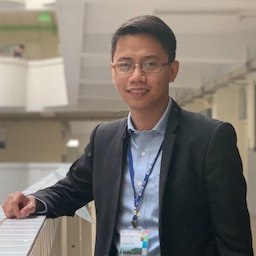
Hernan Alar
Our presentation focused on the proposal for a new algorithm for mosquito genus classification using the recordings of their wingbeats. We presented an approach that is simpler compared to compute-heavy algorithms such as convolutional neural networks. The proposed approach is proven to be accurate and efficient as it requires less memory space while performing the training and predicting processes faster. The conference offered a lot of very interesting and significant topics across a wide array of domains and applications. Topics such as agent-based modeling of complex systems and modeling of social complex systems are of great interest to me personally. YSC is indeed very useful not just for my research career but also for my professional career in the IT industry. Topics such as concurrent indexes supporting complex queries are very applicable to my career as a senior software engineer. The overall experience has been very fulfilling and engaging. Thank you to the organizers for their great work!
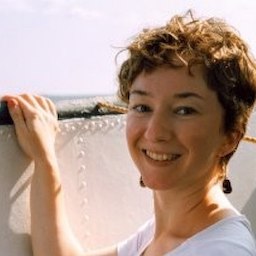
Lyubov Elkhovskaya
One of the major social and economic concerns in healthcare is hypertension control. Our study presents an idea for a hypertension monitoring system that can help avoid over-reaction to the measured changes in patient health.
We proposed new event-processing rules based on descriptive statistics and the average real variability and performed experiments in simulation to mitigate the risks that are common when studying complex systems in healthcare. We believe that our framework of event processing in simulation will be helpful in improving intelligent and complex monitoring and decision support systems.
YSC is a great start for fledgling researchers in computational science. The keynote talks and sections were interesting and insightful. I cannot fail to mention the fruitful discussion within natural language processing (NLP) studies we had on the second day of the conference. We addressed the issues of low-resource languages such as Bengali and considered existing ways of developing Russian corpora and their peculiarities for NLP methods. I look forward to discussing these topics offline next time!
The conference is very useful for young scientists. It provides valuable feedback and insightful comments on your research during the review process and your presentation. YSC is also an opportunity to get to know experts’ opinions, communicate with other researchers, and learn about state-of-the-art methods and current trends.
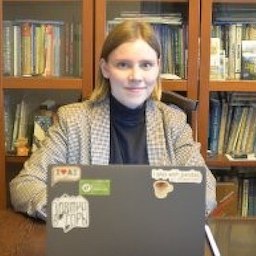
Anastasia Filatova
My research is devoted to the development of semi-automatic methods for analysis of urban environments based on social network data. Nowadays, social networks are one of the main means of communication and information exchange. Alongside traditional media, they, too, have become news sources and have an advantage in terms of the speed at which information is disseminated compared to traditional media. This makes them an excellent source for extracting information about how the city lives, what events are happening in different urban areas, and how residents react to them.
In my talk, I described the algorithms that allow us to determine which urban areas of St. Petersburg are popular among users and which are not based on the texts of Instagram posts and to analyze the structure of such urban areas by identifying their key qualities.
The conference turned out to be very eventful and included both lectures by young scientists and keynote lectures by experienced researchers and professionals in their fields.
Some keynote lectures were especially interesting and useful to me because they were related to the field of my scientific interests. For example, Dr. Mike Lees’ lecture on modelling social complex systems and a lecture by Dr. Janusz Hołyst on the peculiarities of the representation of social relations in the social systems analysis tasks.
However, other lectures were also interesting, as they allowed me to learn new things about popular areas of modern research in the field of computational science. I also found it very convenient that the talks by young scientists were grouped by topic. Thanks to this, the Q&A sessions turned into lively discussions during which I learned a lot of useful information from colleagues around the world who are working on related projects in the same field.
It was the first time I participated in a conference of this scale and it was very useful for me to go through all the stages that scientists usually go through, including writing an article, passing the review stage, and responding to reviewers' comments, presenting the results of my scientific work and discussing them with the scientists around the world. The feedback that I received allowed me to look at my study from other perspectives and I will definitely take it into account in my future work.

Ivo Wings
The research project we presented at the 2021 edition of the YCS was about skill extraction from human resource management (HRM) documents. The continuous growth of the online recruitment industry has made the candidate screening process costly, labor-intensive, and time-consuming. Automating the screening process would expedite candidate selection.
In recent times, recruiting has been moving towards skill-based recruitment where candidates are ranked according to their experience, competencies, and range of skill. Therefore, it is important to create a system that can accurately and automatically identify a candidate’s hard and soft skills from their CV or resume.
This was my first academic conference in general and it was a good introduction to the academic world. It was interesting to see all the different research projects from participants as well as the lectures given at the conference. There was a wide range of topics, which would be interesting for participants from many fields. In particular, I enjoyed the lecture titled Concurrent Indexes Supporting Complex Queries; it provided many insights for my professional and academic career.
Generally, I acquired valuable experience at the conference. It was interesting to go through every stage: from the first draft of an article to peer review. I encourage everyone to participate next year.
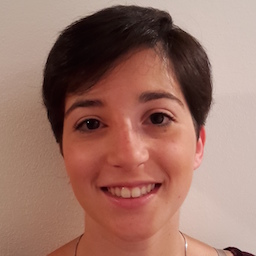
Lorenza Pacini
I have participated in the School because it represented a great opportunity to learn about Machine Learning and Big Data Analysis techniques that I will employ to conclude my PhD project and in my future research projects. I am extremely satisfied with how much I have learnt in such a short period, thanks to the practice-based approach of the lectures as well as the possibility of working on a real case-study since the very beginning of the training period.
Before starting the school, I was worried about the difficulty of working in a newly-formed team without the possibility of meeting in person. However, the communication with Manuk and with our supervisor Peter was very easy and we managed to organize our objectives and tasks in an efficient way. This is also thanks to the huge effort made by the organizing committee in praoviding us all the necessary resources for collaborating in real time despite the thousands of kilometers of distance. It has been really satisfying to be able to acquire new skills and obtain some relevant results in a short time, and this is thanks to Peter's guidance on techniques and dataset we were not familiar with, as well as the great quality of the school lectures. Of course, online events suffer from a lack of the social aspect that is typical of this kind of scientific meetings, but for me YSC2020 was proof that online collaborations can work very well!
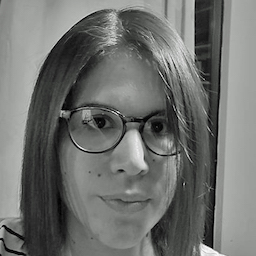
Maria Arnittali
I have attended the school, because I am interested in learning about data analysis and Machine learning. So, this school was a great opportunity and it was also very useful because I have learnt how interesting data analysis is as well as I have learnt some "new tools" during school. It was the first time that I had to work with a teammate that I did not know and also work online, so I was very anxious about it. But I have really enjoyed the collaboration and I think I have learnt more that way. Eventually, working online was very convenient in terms of me.
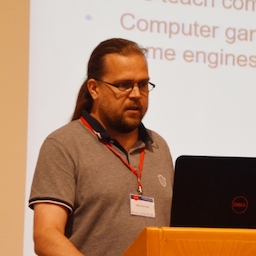
Mika Letonsaari
This isn’t my first time at YSC. I took part in the 2017 conference, which was held at my own university, XAMK, in Kotka. Even then I had understood that this was a good place to acquire feedback on my research. Now I’m back to present the research that formed the basis of my PhD thesis. The conference has changed greatly in recent times. This time, for instance, it lasted for five days and was, therefore, closer in format to a summer school. This change gave me enough time to reflect on others’ reports and compare their work to mine. I also enjoyed the cultural program, which had us visit various landmarks on the island of Crete.
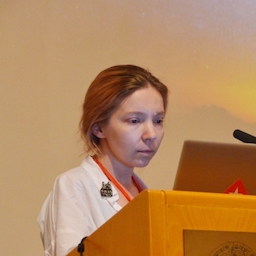
Katerina Beklemysheva
Conferences for young scientists give you the amazing opportunity to learn about actively developing fields as well as the most popular methods and tools. Our research team has recently run into the need to use machine learning in the computational modeling of mechanical processes in organic tissue, and this conference has allowed me to learn more about this subject.
In my opinion, the most valuable aspect of YSC2019 is its informal, but still highly productive atmosphere. Being able to speak the same language and at the same level has let me and my colleagues talk about the specifics of the scientific process more openly than at other conferences I’ve been to. People enjoyed the presentations and I personally was pleased by one news agency staffer’s report on the use of machine learning in tracking articles. Perhaps because our team is in a similar situation right now: we have a practical issue and the need to solve it, one way or another. It was great to learn that someone has succeeded at that.
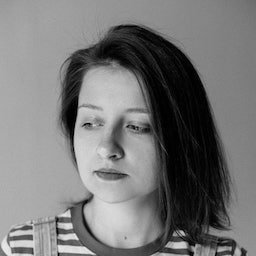
Irina Deeva
As a first-year PhD student, I found the Young Scientists Conference an opportunity to become part of the international academic community and to try my hand not only at writing articles but also presenting the results of my research. Here, you can get some useful feedback on your work and speak to legitimate scientists from around the world. For instance, a reviewer from the University of California gave me some great notes on my article about predicting people’s psychometrics based on social media. It allowed me to look at my research from a different point of view and improve my results.
I enjoyed the fact that this year’s conference included a two-days-long school with lecturers from the US, the UK, and Poland. Its main topic was the analysis of social networks and text data for the purpose of identifying moods on social media. This is a very hot topic right now. In addition to the scientific part, we had an extensive cultural program. The staff of the University of Crete gave us a tour of all of their labs and told us about their research.
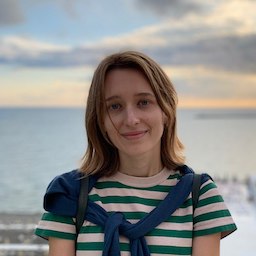
Elizaveta Stavinova
I decided to take part in YSC2019 because the conference is a great opportunity to begin one’s international research activities. There are many things you must do as a participant: write an article, have it reviewed, prepare a report, deliver it and answer the questions, then process the reviewers’ notes. All these things have their own specific quirks that you must learn about through practice.
To me, the biggest benefit of the conference is being surrounded by people who are just as into science as you are. Listening to so many reports has made me less afraid of the language barrier and expanded my scientific horizons. I also got to meet many interesting people. The reviews my article got were, undoubtedly, very useful and helped me improve it and look at my work from different perspectives. Overall, the conference has had a positive effect on my work. When I came home, I felt confident that I am moving in the right direction.
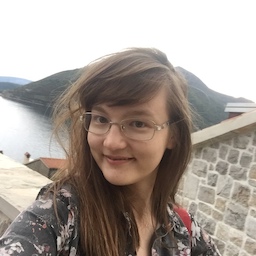
Maria Kalmykova
My main line of research lies in developing image analysis computer algorithms and applying them for creating digital models to use in various scientific apps. Participating in the YCS-2018 conference allowed me not only to display and publish my work, but also to meet other scientists and learn from them. Above all, I’ve become much more confident in presenting my research in English, which I’m sure will be invaluable in my future career. Overall, I had a really great time; what I’ll remember most are the friendly working environment and the fascinating sightseeing tour.
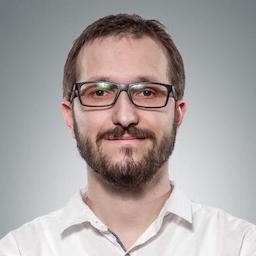
Roman Wiatr
I'm doing research in applying data stream processing to real-time analytics. It was my academic supervisor who encouraged me to participate in YSC-2018. I gave a presentation about optimizing Kafka for low latency systems. Thanks to the conference, I met lots of inspiring people who are trying to solve similar problems with different approaches, so I’ll definitely look into their work.

Vlad Bespalov
I am interested in such events because I am doing a master's degree and research in which I apply machine learning. At YSC, I went for new knowledge. Remote interaction did not cause any problems - we communicated with our teammates in chats, and mentors were in touch even outside the program schedule. While working on the project, we discovered interesting observations that will later be included in our scientific article. We plan to develop them further.